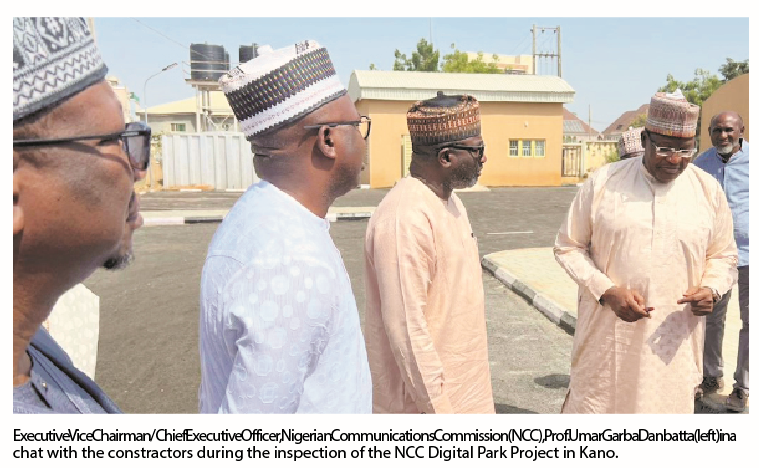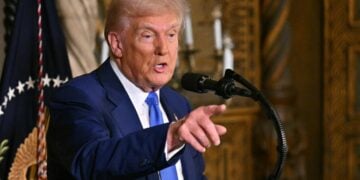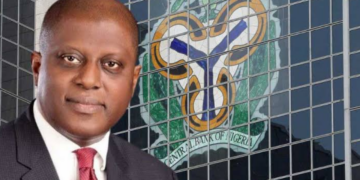The Nigerian Communications Commission (NCC), in line with global best practices, is currently creating another initiative to build digital skills acquisition and provide jobs for the teaming Nigerian youths, promote innovation, and facilitate the delivery of the Federal Government’s digital economy agenda.
While the Commission, as the country’s independent national telecoms regulatory authority, has always played and continued to play strategic roles in the digital transformation of the Nigerian economy, most especially in the area of Information and Communication Technology (ICT) infrastructure and digital skill development, it is increasing such commitments through building of ICT parks across the country’s six geo-political zones.
The ICT Parks will go a long way in boosting to the Federal Government‘s National Digital Economy Policy and Strategy (NDEPS) unveiled by President Muhammadu Buhari last year. The NDEPS has eight pillars which include: Development Regulations; Digital Literacy; Skill Development; Solid Infrastructure; Service Infrastructure; Soft Infrastructure; Digital Societies and Emerging Technologies; and Indigenous Development.
It can be recalled that the ICT Parks Project resonates with the pillars 2, 3 and 8 of the NDEPS. The NDEPS provides the direction on major activities that the ICT industry must embark upon towards consolidating on achievements already recorded in the industry and highlighting new areas that should be focused on in order for the country to achieve a truly digital economy for the country.
What is an ICT Park?
An ICT Park comprises an area or location with concentration of all ICT facilities which enables a concerted leap into the digital age by creating a dynamic environment in which local talent is incubated, cultivated, and shared. ICT parks are best tested and trusted institutional mechanisms to address the needs of technology-intensive, knowledge-based Small and Medium Enterprises (SMEs) globally.
Essentially, the NCC said the four main objectives of establishing the ICT Parks are to provide Innovation Labs and Digital Fabrication Laboratories (Fablabs) for use by ICT innovators and entrepreneurs to turn their ideas into products and prototypes; provide a Commercial Hub for ICT capacity building and digital skills; create employment and entrepreneurial activities; and facilitate smart city deployment across the Digital Industrial complex.
Assessing NCC’s ICT Parks’ Facilities
An initiative under the leadership of Prof. Garba Danbatta, as the Executive Vice Chairman of NCC, the NCC’s ICT Parks Project involves the construction and equipping of fully-functional Tier-4 Digital Industrial Complex (DIC) in each of the six geo-political zones across the country.
The project concept is designed to support Federal Government ICT-related policies by facilitating the availability and accessibility of ICT Services across the country and to promote their usage across all sectors.
The ICT Park consists of laboratories for ICT innovations and Commercial Hubs providing capacity building to ICT Startups and entrepreneurial activities. The parks are designed to provide fast broadband internet service and constant power supply.
Project’s National spread
Shedding light on the ICT Parks project, Danbatta, who recently visited one of the parks being built in Maiduguri, North-East geo-political zone, said, the NCC decided to embark on the important project “which will see ICT parks decentralised in all the six geo-political zones of the country.”
Danbatta, however, stated that the Commission is starting with four zones at the moment. These include the ones located in Abeokuta for the South-West; Enugu for South East, Maiduguri for North-East and Kano for the North West.
The projects, he said, are being implemented with a view to building capacity, exposing Nigerian teaming youths to capacity building initiatives in the areas of skills acquisition and innovation.
“The whole idea of putting these two things (i.e. skill acquisition and innovation) at the forefront of this very important initiative is to produce youths that can be self-reliant, that can generate employment for themselves and for other Nigerians.”
Danbatta said the project, which is consistent with global best practices, has targeted areas of in each of the zones with large concentration of youths.
He promised that, because of its design to have a national spread, the Commission would ensure that no part of the country is be left out of the initiative but added every corner of Nigeria will see the initiative taking up, of course, at different times.
Expectations
Speaking on the expected tech fruits from the ICT Parks, Danbatta said: “As I said, we have four ICT parks, which are at different stages of development. Going forward, we hope to see software development, incubation, including, even, hardware development. Above all, through NCC ICT Parks, we hope to see innovative technologies that will leverage the broadband network the NCC is trying to deploy in order to socially and economically transform our communities and societies.”
Boost for Digital Economy
According to the NCC boss, as NCC deepens broadband access beyond its current 38 percent towards achieving the 70 percent broadband penetration set for 2025 by the Federal Government, the Commission, through the ICT Park, will build a pool of digital skills and literacy in line with the country’s National Digital Economy Policy and Strategy, unveiled by President Muhammadu Buhari in 2019.
“As you may be aware, one of the eight pillars of the NDEPS is Digital Skills and Literacy and in this regard, NCC is supporting this critical pillar of the digital economy agenda. This is because, when we provide resilient broadband infrastructure platforms, there is a need for us to encourage local technology products and applications that will ride on the infrastructure toward developing the country’s overall socio-economic ecosystem in a sustainable way,” he said.
Asked when the projects will be ready for commissioning, Danbatta said he just visited the Kano Park to examine the level of progress of the project while the other three ICT Parks being built in Maiduguri, Abeokuta and Enugu are also at different levels of completion.
“So, going by the level of work already done, I would like to say that before the year runs out, al other things being equal, we should be able to commission one or two of these ICT parts in the country,” he said.
Youth Empowerment
Danbatta further explained the huge opportunities which the ICT Parks will bring to would-be beneficiaries of the project among the Nigerian youths.
“I would like to send out a very important message to our youths, especially those who are currently occupied with various innovative applications, those who have even acquired the skills and are looking for where to put these skills to bring the skills to fruition by, maybe, incubating them, by commercialising them, by giving publicity to these excellent initiatives, that there is going to be a centre in the ICT Parks.
“These centres would be used to showcase their innovations to the global community and very soon, there is light at the end of the tunnel, these various initiatives by the youths in areas of apps, various software products developed and other initiatives, will see t light of day.
“This is because, as I said, we are going to have a centre where we are going to be able to showcase this, not only to potential investors in this country but also to the international audience, who definitely will be interested in some of these important applications that, we hope, we can come up with,” he said.
Kano Digital Park Nears Completion
Just at the weekend, the Prof Danbatta inspected the site of ongoing construction of Kano ICT project in Kano State where he got an unequivocal commitment from the contractors that the project will be completed by January 2023.
During the visit, the EVC, who was accompanied by the NCC’s Head of Projects, Philip Eretan, and the EVC’s Chief of Staff, Malam Hafiz Shehu, among others, with the Special Adviser to the Kano State Governor, Prof. Yusif Alhassan, in attendance, emphasized the need for the contractors to expedite efforts in completing the project on schedule.
Addressing the contractors, Danbatta, “This is a project that Nigerians are eagerly waiting to be completed. The Federal Government and the State government are following it with keen interest, and at NCC, our responsibility is to ensure that there’s no further delay in delivery as we have been doing everything possible to ensure that we have the project commissioned in the next few months.
“While I promise you that we will give you all the support you need, I also demand that progress report to be sent to me fortnightly over the two months period in order to ensure effective monitoring by us at NCC,” he said.
Speaking further, the EVC commended the State Governor for proving land at a prime location in Kano for the project, which he said is an indication of the value the government attaches to the project.
This is not the first time the NCC boss would pay a visit to the construction site of the project located at Audu Bako Secretariat in the ancient city, which doubles as the commercial nerve centre of northern Nigeria.
The EVC‘s latest visit was sequel to a similar visit to the construction site in July 2022 and other visits he had made much earlier, essentially to assess the level of work that has been done so far to ensure that the project is delivered within the set deadline.





